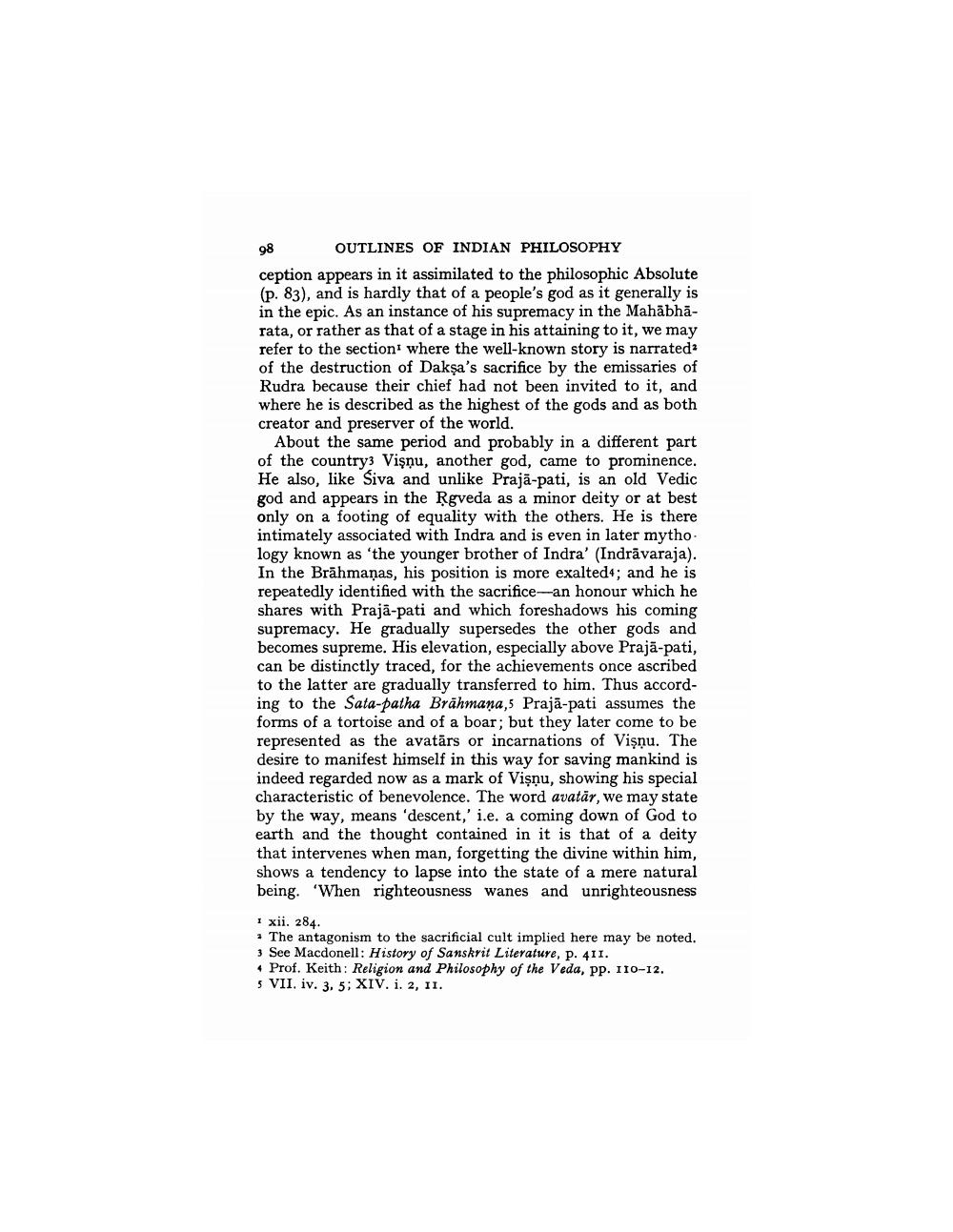________________
98
OUTLINES OF INDIAN PHILOSOPHY
ception appears in it assimilated to the philosophic Absolute (p. 83), and is hardly that of a people's god as it generally is in the epic. As an instance of his supremacy in the Mahābhārata, or rather as that of a stage in his attaining to it, we may refer to the section' where the well-known story is narrated of the destruction of Dakṣa's sacrifice by the emissaries of Rudra because their chief had not been invited to it, and where he is described as the highest of the gods and as both creator and preserver of the world.
About the same period and probably in a different part of the country3 Vişņu, another god, came to prominence. He also, like Siva and unlike Praja-pati, is an old Vedic god and appears in the Ṛgveda as a minor deity or at best only on a footing of equality with the others. He is there intimately associated with Indra and is even in later mytho logy known as 'the younger brother of Indra' (Indrāvaraja). In the Brāhmaṇas, his position is more exalted4; and he is repeatedly identified with the sacrifice-an honour which he shares with Praja-pati and which foreshadows his coming supremacy. He gradually supersedes the other gods and becomes supreme. His elevation, especially above Prajā-pati, can be distinctly traced, for the achievements once ascribed to the latter are gradually transferred to him. Thus according to the Sata-patha Brahmana,5 Praja-pati assumes the forms of a tortoise and of a boar; but they later come to be represented as the avatars or incarnations of Vişņu. The desire to manifest himself in this way for saving mankind is indeed regarded now as a mark of Visņu, showing his special characteristic of benevolence. The word avatar, we may state by the way, means 'descent,' i.e. a coming down of God to earth and the thought contained in it is that of a deity that intervenes when man, forgetting the divine within him, shows a tendency to lapse into the state of a mere natural being. 'When righteousness wanes and unrighteousness
1 xii. 284.
The antagonism to the sacrificial cult implied here may be noted. 3 See Macdonell: History of Sanskrit Literature, p. 411.
4 Prof. Keith: Religion and Philosophy of the Veda, pp. 110-12.
5 VII. iv. 3, 5; XIV. i. 2, 11.




